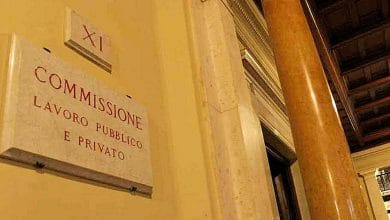
Aug 12, 2014 | By Tracy Staton | Fierce Pharma Marketing ![]()
Nearly half of doctors close their doors to doctors in some way pharmaceutical sales representatives . With all the talk about ISF access to doctors, this state of affairs may seem normal. But is not so. Just 6 years ago, the numbers were very different.
At the time, not even a quarter of doctors had restricted access to ISF, according to ZS Associates' annual state of the pharma report. Year after year, more and more doctors have introduced more and more restrictions on Whistleblowers. Cities where they were more accessible are now narrowing down. And now, affordable, “PHI-friendly” specialties, such as dermatology and gastroenterology, are less and less so.
There are loads of reasons for this, including ethical issues that prompted hospital and medical school teachings to block access to ISAFs – and subsequently the phenomenon solidified, extending the limits to hospitals and doctors' surgeries and to smaller structures.
 But let's see the effects instead. As ZS Associates points out, ISFs spend a lot of time trying to contact physicians who aren't interested. Which, in turn, costs pharmaceutical companies a lot of money. About $1.4 billion a year, in fact. (That's about 50% compared to 2008, but it was the years before the patent hurdle when companies fielded thousands and thousands of repetitive contacts and generally spent a lot more money.)
But let's see the effects instead. As ZS Associates points out, ISFs spend a lot of time trying to contact physicians who aren't interested. Which, in turn, costs pharmaceutical companies a lot of money. About $1.4 billion a year, in fact. (That's about 50% compared to 2008, but it was the years before the patent hurdle when companies fielded thousands and thousands of repetitive contacts and generally spent a lot more money.)
What to do? ZS Associates notes that doctors still need to ask someone – or something – when making decisions about which drugs to use. Since junior doctors work in environments where contacts are limited, newly minted doctors have a habit of seeking information and advice elsewhere, rather than from contacts with ISF. (They're also more likely to prefer mobile contact, but that's another story.)
Every doctor – new or old – has individual preferences, some prefer emails or visiting websites versus others rely on magazine articles or pharma spokesmen. And still others prefer face-to-face with the ISF.
“While it is disheartening that physicians often do not want to hold quality sales rep meetings, most still see these rep contacts as valuable sources of information,” said Pratap Khedkar, principal pharma study leader at ZS .
So, ZS asks, must the job of a pharmaceutical whistleblower change accordingly? Pharmaceutical companies have already talked a lot about how to identify physician preferences and have packaged communications around those preferences. The medical visits must be as many as the preferred information to be transmitted. This is the description of how the pharmaceutical rep works now: the orchestrator, he drives messages to various doctors through various tools, all in the name of making revenue.
“The definition of detail needs to be broadened to include channels in addition to traditional face-to-face contact,” Khedkar says in the ZS report.
Taking it a step further, Khedkar says companies need to find qualitative ways to measure ISF's effectiveness, if they haven't already. Tracking the number of sales leads? Give up. Engagement tracking is the way to go. With whistleblowers trained to contact via digital means, I believe there may be some monitoring on contacts and varying frequencies. Sales will have to be measured, too, but companies have to decide management.
“It's not that these doctors contest receiving information from drug companies,” Khedkar says. It's just that the trend is towards a mix of channels. And with some 50 channels available – webinars, social media, et cetera – Whistleblowers “have to play a critical role” in coordinating various messaging with marketing, and making sure doctors get what they need, and when.
– Read the release from ZS Associates
Special Reports: Top 10 pharmaceutical companies in social media
Related articles:
If reps can't get in doctors' front doors, try alternate routes
Even for busy doctors, 'nothing is as good as a rep' for getting pharma info
Eliquis scores DVT/PE recommendation in Europe
Amid Purdue criticism, CVS cuts opioid access for 'risky' prescribers





